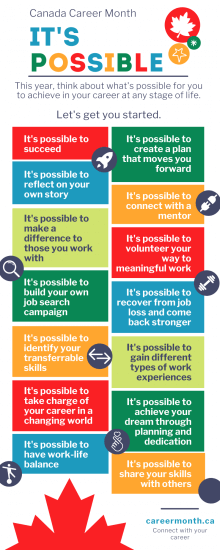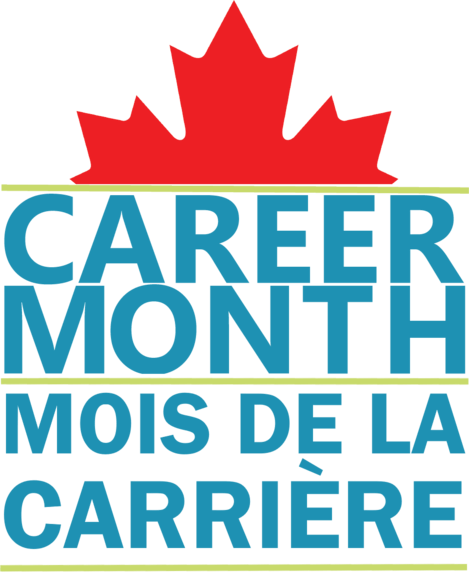5 resources to help you get a job
You’ve done your research, built your skills, and you’re ready to land that dream job. Now what?

As part of our efforts to recognize Canada Career Month and support learners, we’ve put together a collection of resources that should help make your job search a little easier, and much more productive.
1. What is a personal brand, and how can it help?
If you don’t already have your own personal brand, you will want to start developing it so you know what your unique strengths are.
Fortunately, the free Elevate Your Personal Brand course offered through PowerED™ by Athabasca University (AU) has you covered. This course can help you build a personal brand that will align with your values and amplify your strengths.
2. Improving your resumé
Once you have built your personal brand, you’re ready to show it off in your resumé.
There are plenty of resumé support options out there, but I recommend the VMock resumé service offered through the Athabasca University Students’ Union.
VMock is a career acceleration platform that provides instant personalized feedback on your resumé, based on data, machine learning, and language processing. It can help you assess how well you have marketed your core competencies and provides an objective score benchmarked against thousands of other resumés.
3. Writing a cover letter
When applying for a new role, a cover letter that is tailored to the job description is just as important as your resumé.
There are many services available that can help you write a better cover letter. Glassdoor, a leading job-search resource, offers some helpful tips and three templates to help you write a cover letter that will set you apart from the competition.
4. Update and maintain a LinkedIn profile
Why is it important to have a LinkedIn profile? Having a profile, along with a catchy headline and with a copy of your resumé, will make you stand out to headhunters looking for candidates like yourself.
First you can create a LinkedIn Learning account with your AU email account. Once you’re logged in, take the Learning LinkedIn course, which is a step-by-step guide to help you create your profile.
5. Preparing for a job interview
Once you have landed a job interview, you will need to prepare yourself. There are countless resources available, but here are some that I recommend to get you started:
- The STAR Method for job interviews is outlined in this blog post from the job-search experts at The Muse.
- The Muse also offers a list of 30 behavioural interview questions that you should review and be prepared to answer in your job interview.
- Lastly the experts at Glassdoor provide a variety of in-depth articles to help you prepare for job interviews.
Watch for more helpful career-planning advice throughout the month of November for Canada Career Month:
- Week 1: ‘It’s possible’ to make effective career decisions during Canada Career Month
- Week 2: 3 ways to leverage past experience into a new career
- Week 3: 3 steps to help you decide what to study in university
- Week 4: 5 resources to help you get a job
If you would like more information about career planning, please contact Counselling Services at counselling@athabascau.ca.
